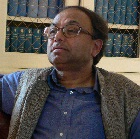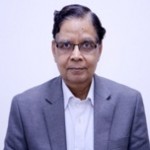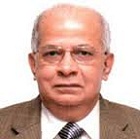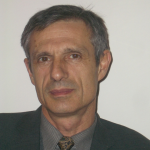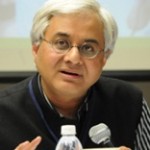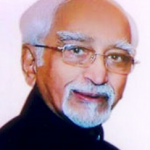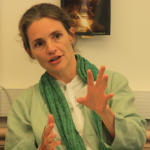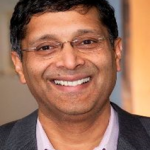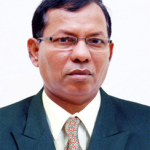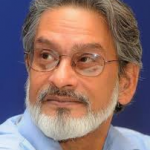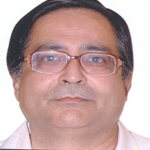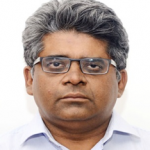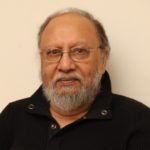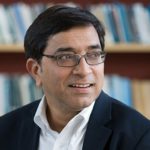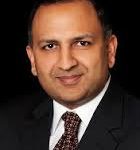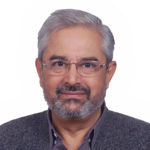Patna, November 30, 2015
Political Scientist Professor James Manor delivered the ADRI Silver Jubilee Curtain Raiser Lecture titled India’s States – The Struggle to Govern’ at a hotel here on Monday. ADRI is celebrating its Silver Jubilee Year in 2016-17 and this lecture was the curtain raiser event of the forthcoming celebrations of ADRI.
Former Chief Minister Shree Laloo Prasad was the chief guest on the occasion. Shree Laloo Prasad said Bihar’s revenue remains in the hands of Delhi and there are enough reasons to claim that Bihar is still being marginalised in allocation of funds.” He said that the fight of social justice has still a long way to go before Bihar can move on the path of prosperity.
Earlier Dr. Shaibal Gupta welcomed the guests and Dr. Sunita Lall introduced the guests to the audience.
Professor Manor in his half an hour lecture talked about how some Indian states have seen large scale centralization and strengthening of chief ministers of those states. At the outset only, Prof. Manor declared that his lecture is not much about Bihar in particular but about many Indian states.
Prof. Manor said: “It is not easy being a Chief Minister of an Indian state. Demands from many different interest groups are hard to satisfy. Voters are sophisticated and impatient. Development is difficult to achieve. Most political party organisations are weak. Bureaucracies in some states are in bad shape. A Chief Minister needs to be a good administrator, a good communicator, a clever manipulator of people and interests – and much more. The job has become easier since 2003 when government revenues began to increase rapidly. That trend continues even now. State governments have more money to spend and can do much more than before 2003. But life is still very challenging for any Chief Minister. States have always been very important in India. It is there that most of the governing occurs.”
Finance Minister Shree Abdul Bari Siddiqui, Energy Minister Shree Bijendra Prasad Yadav, Tourism Minister Smt. Anita Devi, Former Vidhan Sabha Speaker Shree Udai Narayan Chaudhary, several new legislators and politicians, senior bureaucrats including AK Chauhan, Manoj Srivastava and others were present on the occasion.
ADRI’s Director  Professor P.P. Ghosh paid the vote of thanks on the occasion.
Indias States: The Struggle to Govern
This lecture will examine the problems and opportunities that Chief Ministers and their close associates in Indias states have faced in recent years. It will also discuss important changes that have occurred, especially since 2003. It will consider marked variations in approaches to governance and development in different states. Those variations mean that the Indian state, as citizens experience it, takes rather different forms in different states
In the years between 1989 and mid-2014, no single party could gain a majority in the Lok Sabha. That caused a major redistribution and decentralisation of power away from the once dominant Prime Ministers Office horizontally to other institutions at the national level and vertically downward to governments and forces at the state level. (The 2014 parliamentary election gave the BJP a majority, so that a re-centralisation of power is now underway. But other institutions that gained substantial power after 1989 may now be able to retain much of it.)
Ironically, this decentralisation of power at the national level, and within the federal system, was accompanied by a marked centralisation of power in the hands of Chief Ministers within many (though not all) states. This lecture will explain how this happened. It is connected with two trends: (a) a surge in state and central governments revenues after 2003, and (b) Indias far from neo-liberal economic order which leaves huge discretionary power in the hands of Chief Ministers.
The lecture will also analyse the various devices which Chief Ministers centralisers and non-centralisers use as they seek to increase their influence and to survive in power. Some of these devices are legitimate while others are illicit. Both have implications for state governments development strategies.
Not Available
James Manor is the Emeka Anyaoku Professor Emeritus of Commonwealth Studies in the School of Advanced Study, University of London.  He has previously taught at Yale, Harvard and Leicester Universities, at the Institute of Development Studies in Sussex, and at the Institute for Social and Economic Change, Bangalore.  His most recent books, both forthcoming in 2015 from Orient BlackSwan, are Politics and State-Society Relations in India: Collected Writings, and with Rob Jenkins,Politics and the Right to Work: The Mahatma Gandhi National Rural Employment Guarantee Act.
March 26, 2016 - March 30, 2016
PThe agenda of development and efforts of various scholars, both economists and others, to theorize it do not have a long history. Midway through the twentieth century, when the Second World War had ended, paving the emergence of a new international political order, the idea of development was probably first initiated. The international response was wide-ranging, informed by both concern and hope, and one such response was the first Report on the World Social Situation, published by the United Nations in 1952. Since then, the world has witnessed enormous changes social, economic and political. But have the goals of development that the world had set for itself been met? What are the achievements, and where are the deficits? Where do the development theories stand now? Is the present understanding of the phenomenon more comprehensive, or do they only indicate some conceptual inflation? And finally, does development still continue to be a universal social agenda, or has it been replaced by the affirmations of neoliberalism? These questions deserve great attention.
On the achievements of the development agenda, the experience has been extremely varied, both across and within countries. But the overall experience has left doubts, both about the commitments and the strategies for development. On the one hand, the number of developing countries which were able to substantially raise at least their material wealth was rather limited. Secondly, human development lagged behind material gains in many countries, growing either moderately or fast. This has led World Development Report 2006 to argue that equity has a central place in the interpretation of the development experience and the design of development policy. We now need to inquire not just why some countries grow and others dont, but, hopefully, also work out a typology of growth patterns in different countries.
Towards theorising, there have also been several tangible attempts to comprehend and explain the phenomenon of development from unexplored angles. The initial theories of development were understandably economic correlates, but limitations of those initial theories were gradually revealed through many country experiences. Later, scholars have tried to unveil the non-economic correlates of a development process that include, among others, human development, role of institutions, and empowerment of people. But, parallel to the search for theories that view development as an all-encompassing social process, there has also emerged neoliberal thinking on development, emphasising the potential of a market-driven development process. Indeed, the development experience of the last quarter century, during which neoliberalism has been rather dominant, has generated an excited debate about development theories.
Now that nearly six decades have passed since the development agenda was first initiated, analysing development experience and rethinking development economics is a tempting exercise. The proposed conference aims at conducting that exercise, first in an international perspective, and then in an Indian context.
Not Available
Pranab Bardhan is Professor of Graduate School at the Department of Economics, University of California at Berkeley. He was educated at Presidency College, Kolkata and Cambridge University, England. He had been at the faculty of MIT, Indian Statistical Institute and Delhi School of Economics before joining Berkeley. He has been Visiting Professor/Fellow at Trinity College, Cambridge, St. Catherine’s College, Oxford, and London School of Economics. He held the Distinguished Fulbright Siena Chair at the University of Siena, Italy in 2008-9, and was the BP Centennial Professor at London School of Economics for 2010 and 2011.
He has done theoretical and field studies research on rural institutions in poor countries, on political economy of development policies, and on international trade. A part of his work is in the interdisciplinary area of economics, political science, and social anthropology. He was Chief Editor of the Journal of Development Economics for 1985-2003. He was the co-chair of the MacArthur Foundation-funded Network on the Effects of Inequality on Economic Performance for 1996-2007.
He is the author of 14 books and editor of 12 other books, and author of more than 150 journal articles. His last two books are: Awakening Giants, Feet of Clay: Assessing the Economic Rise of China and India (2013), and Globalization , Democracy, and Corruption: an Indian Perspective (2015).
Dr. Arvind Panagariya is currently Vice-Chairman, NITI Aayog. In the past, he has been Jagdish Bhagwati Professor of Indian Political Economy at the Columbia University and Professor of Economics at the University of Maryland at College Park. He has worked in various capacities at the World Bank, International Monetary Fund and the United Nations Conference on Trade and Development. Dr. Panagariya is a leading international trade theorist of his generation. His numerous policy writings on the benefits of trade liberalization, superiority of multilateral over preferential trade liberalization, and the folly of including non-trade issues such as intellectual property rights and labor standards into the World Trade Organization have been extremely influential.
Dr. Nachane is currently Chancellor of Manipur University, Imphal, and Professor Emeritus at Indira Gandhi Institute of Development Research (IGIDR). He was formerly a Member of Prime Minister’s Economic Advisory Council (2012-14). He was also Director-cum-Vice Chancellor of the IGIDR (2007-2010), Senior Professor, IGIDR (2003-2007) and Director, Department of Economics, University of Mumbai (1993-99).
Most of Dr. Nachane’s active career has been spent at the Department of Economics, University of Mumbai, from which he retired in 2003 as Professor of Quantitative Economics. He was also Director of the Department for a six year period from 1993 to 1999. Dr. Nachane’s contributions in Econometrics (especially time series analysis) are too well known to be recounted in detail here. In recognition of his outstanding contributions to the subject, the Indian Econometric society elected him as its President in 2003. But apart from Econometrics, he has also actively researched in the areas of economic methodology, macro-economics, money, banking and finance and history of economic thought. Dr. Nachane is also currently Editor-in-Chief of the TIES Journal of Quantitative Economics as well as a Co-editor of Money & Finance in Emerging Market Economies (Francis & Taylor). Dr. Nachane has served for a number of years on the editorial Advisory Boards of Regional Journal of Social Sciences, Australian Journal of Basic and Applied Sciences, Margin, Journal of Interdisciplianry Economics, Artha -Vijnan, etc. He is an Elected Member, Academy of Sciences, New York, USA and  has been associated with several important committees of which special mention must be made of the RBI Technical Advisory Committee on Monetary Policy on which he has served from 2005-2011 and the RBI Technical Advisory Committee on Inflation Expectations (from 2007-2011).
He has also been associated with several important Financial institutions such as  SBI-DFHI (currently Board Member) , DICGCI (Board Member 2006-2008),  NSE (Board Member 1998-2000) , BSE (Council Member 2008-2010) CCIL (Member, Research Advisory Committee) etc. He has been visiting Professor at several foreign universities, including most notably the University of Manchester (U.K.), the University of British Columbia (Canada), the University of Magdeburg (Germany) and the European University Institute (Italy). He has nearly 100 articles in refereed journals to his credit and has authored/co-edited about 10 books.
Jean-Joseph BOILLOT is an Advisor to the CEPII Business Club on large emerging economies like India and China. It has expanded its scope to Africa since his return to Paris in 2006. He lectures at numerous institutions and is a recognized expert with many public institutions and private businesses.
He is co-Chairman of the Euro-India Economic & Business Group (EIEBG), member of the editorial committee of Alternatives Economiques, of the think-tank Confrontation Europe, and Scientific advisor at ISEG. Jean-Joseph BOILLOT is Professeur of Social Sciences and hold a PhD in Economics. He worked on Asia as an economist with the CEPII during the 1980-90s. Then he joined as an economic advisor the French ministry of finances for the Emerging countries: Central Europe, Russia, Asia and India.
Dr. Binayak Sen is currently a Research Director of the Bangladesh Institute of Development Studies (BIDS), the premier public think-tank of the country. He did his MA in Economics from the Moscow State University and his Ph. D. in Economics from the Institute of Oriental Studies of the Russian Academy of Sciences. He has been a Senior Economist in the South Asia Region of the World Bank as a regular staff member and a Visiting Research Fellow at the Research Administration Department of the World Bank. He has served as a consultant for the Asian Development Bank, UN-ESCAP, UNDP and WHO. Dr. Sen also loves teaching. He has taught economic development courses at the North South University, BRAC University, Dhaka University and National University in the past two decades. His major areas of research include inclusive development, chronic poverty, income inequality, middle class, human development, labor market, social protection, economic history, and political economy.
Dr. A. K. Shiva Kumar is a development economist and evaluator, working on issues related to Human Development, Poverty, Health, Nutrition, Basic Education, and the Rights of Women and Children. He is presently Senior Consultant and Policy Advisor to UNICEF India and, until recently, was the Director of the International Centre for Human Development in New Delhi. He is a Visiting Professor at the Ashoka University, Indian School of Business and the Kennedy School of Governance at the Harvard University, USA.
Kaivan Munshi is Frank Ramsey Professor of Economics at the University of Cambridge. His research career has been devoted to the analysis of communities and their interaction with economic activity. His recent work has examined the effect of community networks on education, health, and mobility, which are key determinants of growth and development. Munshi’s research has been published in the American Economic Review, Journal of Political Economy, Quarterly Journal of Economics, and the Review of Economic Studies. He is currently co-editor of the Journal of Development Economics.
Professor Munshi’s long-term research program examines the multifaceted role played by informal community institutions in the development process. The first stage in this research was devoted to providing credible empirical evidence that social norms and community-based networks have large effects on individual decisions and outcomes in developing economies. The second stage studied how networks can support or restrict the mobility of their members, depending on the context, with important consequences for development. Much of this work is based in India, where the caste is a natural social unit around which networks serving different economic functions (such as providing jobs and credit for their members) can be organized.
Professor Munshi’s current research expands this program in four directions. One project will expand the scope of caste networks from economic activity to community health. A second project will examine networks in a new context, tracing the evolution of African-American communities from Emancipation through the twentieth century. A third project will study the assimilation of South Asian immigrants in the United Kingdom over multiple generations. And a fourth project will explore the community origins of industrial entrepreneurship in India and China.
Lakshmi Iyer is an Associate Professor at Harvard Business School. Her primary research fields are political economy and development economics, with a special emphasis on property rights and the distribution of political power within societies. Her research has examined many dimensions of the distribution of political power within emerging market countries, including the legacy of colonial rule, the division of authority between politicians and bureaucrats, and the determinants of conflict. She is currently working on several projects related to the determinants and consequences of women’s political representation. She has also studied historical and current property rights institutions in several emerging markets including India, Vietnam, China and the Philippines. Her work has been published in leading academic journals in economics. She has also authored numerous case studies on institutions, macroeconomics and economic policy. Lakshmi Iyer holds Bachelors and Masters degrees from the Indian Statistical Institute, and a PhD from the Massachusetts Institute of Technology (MIT).
June 24, 2016 - June 27, 2016
India is fortunate to have a statistical system that has a long history. ‘Statistical Abstract of British India’ was published as early as 1862, and the first population census was conducted in 1881. Several initiatives were taken thereafter, and when India became independent in 1947 it had a statistical system that was much more informative than those in other developing countries. Later, to strengthen state planning (the core of India’s development strategy then), the country’s statistical system was expanded and professionally strengthened through various steps. However, over the years, certain limitations of the system have increasingly become serious, thereby limiting not only its contributions to the decision-making in administration, but also its role as the most important source of data for research.
n important initiative in strengthening the existing statistical system in India was the creation of National Statistical Commission in 2006 with an expansive mandate– one of which is to ‘evolve measures for improving public trust in official statistics’. This issue of the lack of adequate trust in official statistics is particularly serious for social statistics that relates to the status and progress in human development in the country. The dissatisfaction arises from several angles. For one, the quality of data is sometimes unreliable, with the method of collection being improper. In the face of resource constraints or inadequate supervision, the field personnel sometimes replace observation with judgments to generate unreliable data. Secondly, social statistics are generally available at the national or state level butthe information on sub-state/district level is very limited. This stands in the way of analyzing intra-state variations in development, a wide phenomenon in many states of India. Finally, there have also recently emerged new areas whose link to development is substantial, but they do not fall within the country’s social statistics system parameterized long ago. The status of environment is one such area, as is focused data on gender disparities. Indeed, in the wake of an already visible information explosion and increasing role of knowledge capital in many societal actions, the ambit of social statistics needs to be extended further.
Unfortunately, opportunities where users and collectors of social statistics could discuss these limitations are very limited. The proposed conference is expected to create one such opportunity, where the participants would identify the limitations of social statistics in India, explore the sources of these limitations and, finally, suggest pathways to overcome them.
Not Available
Presently the honourable Vice-President of India, Shri Md. Hamid Ansari was earlier a distinguished diplomat who joined the Indian Foreign Service (IFS) in 1961. During his long diplomatic career, he has served as country’s Ambassador in a number of countries, including UAE, Afghanistan, Iran, Saudi Arabia and Australia. He is indeed one of the authorities on West Asian Politics. He was also once the country’s Permanent Representative to the UN. Later, Shri Ansari has served many academic institutions — Aligarh Muslim University, Jamia Milia Islamia, Jawaharlal Nehru University and Observer Research Foundation. Apart from writing several academic papers and newspaper articles on West Asian Politics, he has also authored two books and edited another one, the last one being ‘Testing Questions : Exploring Discontents in Contemporary India’. In 1984, he was awarded Padma Shri by the Government of India.
Dr. Sabina Alkire directs the Oxford Poverty and Human Development Initiative (OPHI), a research centre within the Department of International Development, University of Oxford. She is also the Oliver T. Carr Professor and Professor of Economics and International Affairs at the George Washington University. Her research interests and publications include multidimensional poverty measurement and analysis, welfare economics, the capability approach, measurement of freedoms and human development. She holds a D.Phil. in Economics from the University of Oxford.
Dr. Arvind Subramanian is currently the Chief Economic Advisor to the Government of India. He is on leave for public service from his position as the Dennis Weatherstone Senior Fellow at the Peterson Institute for International Economics, USA. He also served as Senior Fellow at the Center for Global Development. He was earlier an Assistant Director in the Research Department of the International Monetary Fund. He served at the GATT (1988–92) during the Uruguay Round of trade negotiations and taught at the Harvard University’s Kennedy School of Government (1999–2000) and at Johns Hopkins’ School for Advanced International Studies (2008–10). He has written on growth, trade, development, institutions, aid, oil, India, Africa, and the World Trade Organization. He has published widely in academic and other journals. Foreign Policy magazine named him as one of the world’s top 100 global thinkers in 2011.
Dr. Faujdar Ram is presently the Director of the International Institute for Population Studies (IIPS), Mumbai. Under the Rockefeller Foundation Fellowship programme, he has done his Post-Doctoral research at the Ohio State University, USA. He spent nearly whole of his career at IIPS, working on a number of dimensions of the demographic trends in India. He has published more than 80 research articles in reputed journals. He is a member of a number of national and international scientific societies and is the current President of the Indian Association for the Study of Population (IASP)
Dr. Pronab Sen is the Country Director for the IGC’s India Central Programme and, until early 2016, he was the Chairman of Indian Statistical Commission. He received his Ph.D. in Economics from the Johns Hopkins University, specialising in open-economy macroeconomic systems, international economics and public finance and his M.B.A. (1974) and M.A. in Economics (1975) from the George Washington University, USA. Previously, he was the Principal Adviser, Power and Energy, at the Government of India’s Planning Commission. He also had positions as the first Chief Statistician of India, acting as the functional and technical Head of the country’s national statistical system, as well as Secretary, Ministry of Statistics & Programme Implementation (2007-10). As a representative of the Planning Commission, he was the principal author and coordinator of Mid-term Appraisal of the Eighth Five Year Plan, Ninth Five Year Plan, Mid-term Appraisal of the Ninth Five Year Plan, Tenth Five Year Plan, and the Mid-term Appraisal of the Tenth Five Year Plan.
Dr. Navin Rustagi is a Big Data scientist at the Human Genome Sequencing Center at Baylor College of Medicine. He works  in the areas of  Population Genetics and Bioinformatics,  with special focus  on designing algorithms for  processing extremely large sequencing datasets. His recent work on populations from south India illuminates the rich genomic diversity in the Indian subcontinent. He played an integral part in designing and implementing cloud AWS-based algorithms for discovering genetic markers for premier longitudinal studies related to heart diseases and Ageing in the USA. He completed his Ph.D. in Computer Science from the University of New Mexico, USA and his undergraduate degree in pure mathematics from the Chennai Mathematical Institute in India.
Dr. TCA Anant is currently the Chief Statistician of India and Secretary, Ministry of Statistics and Programme Implementation. Earlier, he had taught at the Delhi School of Economics for more than two decades and was also Member-Secretary of the Indian Council of Social Science Research (ICSSR), New Delhi. He has also been a member of a number of expert committees of the Government of India. Professor Anant has served in the Academic Council or Boards of a number of universities and has been a consultant to many international organisations. His areas of interest is labour, industry and economic theory, on which he has published a number of papers and books.
Dr. Rathin Roy is Director of the National Institute of Public Finance and Policy (NIPFP), New Delhi. With postings in London, New York, Kathmandu, Brasilia and Bangkok, he has worked as an Economic Diplomat and Policy Advisor with UNDP, focusing on emerging economies. He has taught at the Universities of Manchester and London and served as Economic Adviser with the Thirteenth Finance Commission. Dr. Roy is a Member of India Advisory Committee on United Nations Environment Programme (UNEP), Meta Council on Inclusive Growth, World Economic Forum (Geneva) and Poverty Task Force of the Government of India. Dr. Roy holds a Ph.D in Economics from the University of Cambridge.
March 24, 2017 - March 28, 2017
Bihar and Jharkhand, right from ancient times, have attracted scholars attention for various reasons. The region that presently encompasses these two states holds histories that shape them even today. The region is remembered for its numerous achievements in ancient period, like the establishment of the first democracy of the world in Lichhavi, or the place where Buddhism first emerged, or the great centre of learning in Nalanda. Even during the colonial period, the two states played a stellar role in the independence struggle, starting with the Champaran struggle of Mahatma Gandhi. But this image of the two states, a land of glorious past, has now been overtaken by another one underlying its serious social and economic disadvantages and the complex socio-political forces that guide its destiny. Admittedly, the two states have experienced some positive changes in the recent past, but both have a long way to go before they can emerge as regions of prosperity and enlightenment.
Some of the socio-economic and cultural differences within the region cumulated in the partition of the region in 2000 and the formation of the two separate federal states. However, shared histories of development and decline continue to impact the region in the present time. The borders have separated the region politically but have not disunited the states socio-economically and/or culturally. As neighbouring states with shared pasts, the borders are porous, both literally and symbolically.
Bihar is one of the regions that have very limited natural endowments, thus, making the task of development demand extraordinary human effort. Before its partition in 2000, the state had enormous mineral wealth in its southern part, now Jharkhand; but even after the division, the present Bihar has large tracts of fertile land in its Gangetic plain. But, thanks to its agrarian history, dictated largely by the infamous Permanent Settlement regime, introduced by the colonial administration, the growth potential of its land resources is far from being fully realised. Educational backwardness and infrastructural poverty the result of states indifference during pre- as well as post-independence period are the two crucial needs that have turned the agenda of development even more challenging in present Bihar.
The story of Jharkhand is not much different, as its natural abundances have been unable to meet its peoples aspirations. No reassuring answers have appeared on the way out of this dismay. Its industries are churning out wealth that is revitalizing the capital, but it has left much of labour unattended. Such an opaque vision of development will only reinforce frictions in society. The state seriously needs to mull what would satisfy its people, and create a model of its own, if necessary. It also needs to ask how its preparing to cope with identities.
The polity of both Bihar and Jharkhand is sharply divided along class, caste and tribal identities. Unlike some other states, the political process here has deep roots that had started parallel to Indias independence struggle and various radical mobilisations. And, there were also caste-based mobilisations that probably started with certain social objectives but later acquired strong political implications. Some have witnessed an element of political democratisation in recent socio-political trends, while others underlined disconnect between democracy and development in that very trend.
Jharkhand and Bihar are now at a crossroad and one wonders which path they would tread in the near future. In their conference presentations, scholars will be invited to deliberate on above-mentioned shared histories of development, agitation, decline and divergences, muse on the present and speculate about the future of the region, based on recent state-specific experiences.
Not Available
Ashis Nandy has worked for more than thirty-five years on two diametrically opposite domains of social existence — human potentialities and human destructiveness. It is the oscillation between these two domains that defines his work. Even in his ongoing study of genocides in South Asia, the emphasis is on the resistance offered by ordinary people to organised machine violence and ethno-nationalism. This has brought him close to social movements and non-state political actors grappling with issues of peace, human rights, inter-civilizational dialogue, environment, and cultural survival. Nandy has been trying hard during the last so many decades to de-professionalize himself and to allow his work to be contaminated by the categories, worldviews and forms of social criticism that could be built upon vernacular
subjectivities. Nandy is a Honorary Senior Fellow of the Centre for the Study of Developing Societies, Delhi, and Distinguished Fellow of the Institute of Postcolonial Studies, Melbourne. In 2007, he received the Grand Prize of the Fukuoka Asian Culture Prizes and, in 2008, he was chosen as one of the top 100 intellectuals of the world by the magazine Foreign Policy and Carnegie Endowment for International Peace.
Peter Robb is Professor Emeritus and formerly Professor of the History of India, Chair of the Centre of South Asian Studies, Head of the Department of History and Pro-Director at SOAS (University of London). He is a Fellow of the Royal Historical Society and a Fellow, Council-member and former president of the Royal Asiatic Society. He is currently working on the late 19th-century, a book tentatively called The British and Bihar: Development in a Colonial Society. His 10 edited or co-edited volumes cover Indo-British relations, institutions, rural South Asia, local agrarian societies, protest and identity, ideologies, race, Dalit movements and labour, agriculture and development. Of his nine monographs, three are about early Calcutta and four wholly or partly on the 19th – and 20th-century Bihar.
Ashutosh Varshney is Sol Goldman Professor of International Studies and the Social Sciences at Brown University, where he also directs the Brown-India Initiative. Previously, he taught at Harvard and the University of Michigan, Ann Arbor. His books include Ethnic Conflict and Civic Life: Hindus and Muslims in India; Democracy, Development and the Countryside; Urban-Rural Struggles in India; India in the Era of Economic Reforms; Midnight’s Diaspora; Collective Violence in Indonesia; and Battles Half Won: India’s Improbable Democracy. His academic articles have appeared in the leading journals of political science and development. His honours include the Guggenheim, Carnegie, Luebbert and Lerner awards. He is a contributing editor for The Indian Express and his guest columns have appeared in many other newspapers, including the Financial Times. He served on the UN Secretary General Kofi Annan’s Task Force on Millennium Development Goals and has also served as advisor to the World Bank and United Nations Development Program (UNDP).
Pratap Bhanu Mehta, president and chief executive of the Centre for Policy Research, is a political scientist who has taught at Harvard University, JNU and the New York University School of Law. His areas of research include political theory, constitutional law, society and politics in India, governance and political economy and international affairs. He has served on many central government committees, including India’s National Security Advisory Board, the Prime Minister of India’s National Knowledge Commission and a Supreme Court-appointed committee on elections in Indian universities. Mehta is a prolific writer and an editorial consultant to The Indian Express and his columns have appeared in a number of reputed dailies. He is also on the editorial boards of many academic journals, including the American Political Science Review, the Journal of Democracy and India and Global Affairs. Mehta holds a BA in Philosophy, Politics and Economics from Oxford and a PhD in politics from Princeton.
Former ICSSR National Fellow and retired Professor, Madras Institute of Development Studies, S Subramanian Independent Volunteer on a rural development project in Jawaja, Rajasthan. The project was sponsored by the ICSSR and executed
by the Indian Institute of Management, Ahmedabad. He has also been a Consultant with Project Appraisal Division, Planning Commission and Bureau of Industrial Costs and Prices, Government of India.
Dipak Gyawali is a hydroelectric power engineer (Moscow Energy Institute), political economist (Energy and Resources Group, University of California at Berkeley), and academician of the Nepal Academy of Science and Technology, as well as chairman of Nepal Water Conservation Foundation. A former minister of Water Resources in Nepal, who introduced community electricity giving control over distribution to the rural consumers, he conducts interdisciplinary
research at the interface of technology and society, primarily on water, energy, natural resources as well as ethics and philosophy, basically from the perspectives of cultural theory of plural rationalities. Currently, he is on the advisory committee of UNESCO’s World Water Assessment Program, IDS Sussex STEPs Center, and in Nepal he was the founding chairman of a grass root NGO dedicated to the task of poverty alleviation, the Rural Self-Reliance Development Center (Swabalamban).
Christopher V Hill is a Professor of History at the University of Colorado at Colorado Springs. He received his Ph D from the University of Virginia in 1987. He has published widely on the environmental history of Bihar and Odisha, and his publications include River of Sorrow: Environment and Social Control in Riparian North India, 1770-1996 and South Asia: An Environmental History.
He has received a number of prizes and fellowships for his work, including the Aldo Leopold Award from the American Society of Environmental History, and a Fulbright Senior Research Fellowship.
Emeritus Professor of International Development and Fellow, Academy of Social Sciences, UK, Geoff Wood is also Visiting Professor at the Centre of Development Studies, University of Bath. He has conducted extensive research on aspects of poverty, governance and civil society in North India, Bangladesh and Pakistan over three decades, with additional work in Nepal, Afghanistan, Thailand, Venezuela and Peru. His applied work has included policy analysis and action-research with governments, NGOs and international agencies. He is currently focussed upon insecurity, welfare regimes, well-being and strategies of de-clientelisation, governance and civil society, and the characteristics of extreme poverty.
Alpa Shah is Associate Professor in the Department of Anthropology, LSE where she directs the Programme of Research on Inequality and Poverty. Shah read Geography at Cambridge, trained in Anthropology at the LSE, taught anthropology at Goldsmiths, University of London for eight years until she returned to the London School of Economics.
Shah’s research and writing focuses on poor and marginalised people in India and Nepal, in particular Adivasis, Dalits and Janajatis. She explores the processes of inequality people get caught in and the various ways in which they try to subvert them. She has lived for several years as a social anthropologist among the Adivasi communities she writes about, here in rural Jharkhand. Shah is the author of In the Shadows of the State: Indigenous Politics, Environmentalism and Insurgency in Jharkhand, India. She has also published more than twenty-five essays and journal articles, and has edited seven volumes on issues ranging from affirmative action, agrarian change, revolution in India and Nepal, emancipatory politics, the underbelly of the Indian boom, and Adivasi and Dalit political pathways.
Subrata K. Mitra is Director, Institute of South Asian Studies (ISAS), and Visiting Research Professor, NUS. He moved from Heidelberg, Germany, where he was Head of the Department of Political Science at the South Asia Institute for the past 20 years. Subrata Mitra holds a PhD in Political Science from the University of Rochester, New York. His professional career spans India (Centre for the Study of Developing Societies, New Delhi), France (Maison des
Sciences de l’Hommes, Ecole des Hautes Etudes en Sciences Sociales, Paris), the United Kingdom (the Universities of Hull and Nottingham), the United States (University of California, Berkeley) and Germany (Ruprecht-Karls-University, Heidelberg). He has also held visiting positions in Tsinghua University, Beijing, China and the Radhakrishnan Chair, Central University of Hyderabad. He has published extensively in various journals.

























































































































































